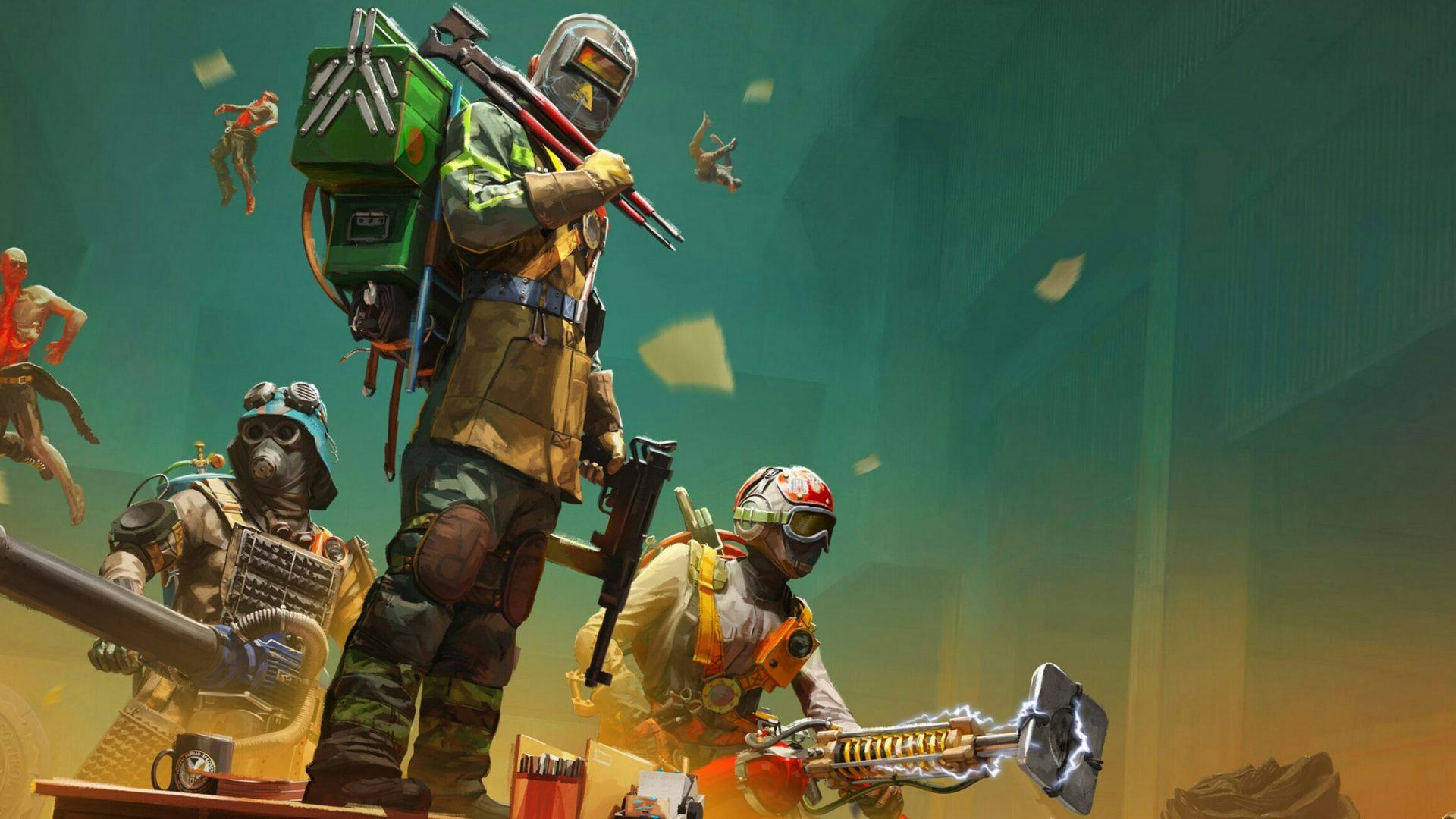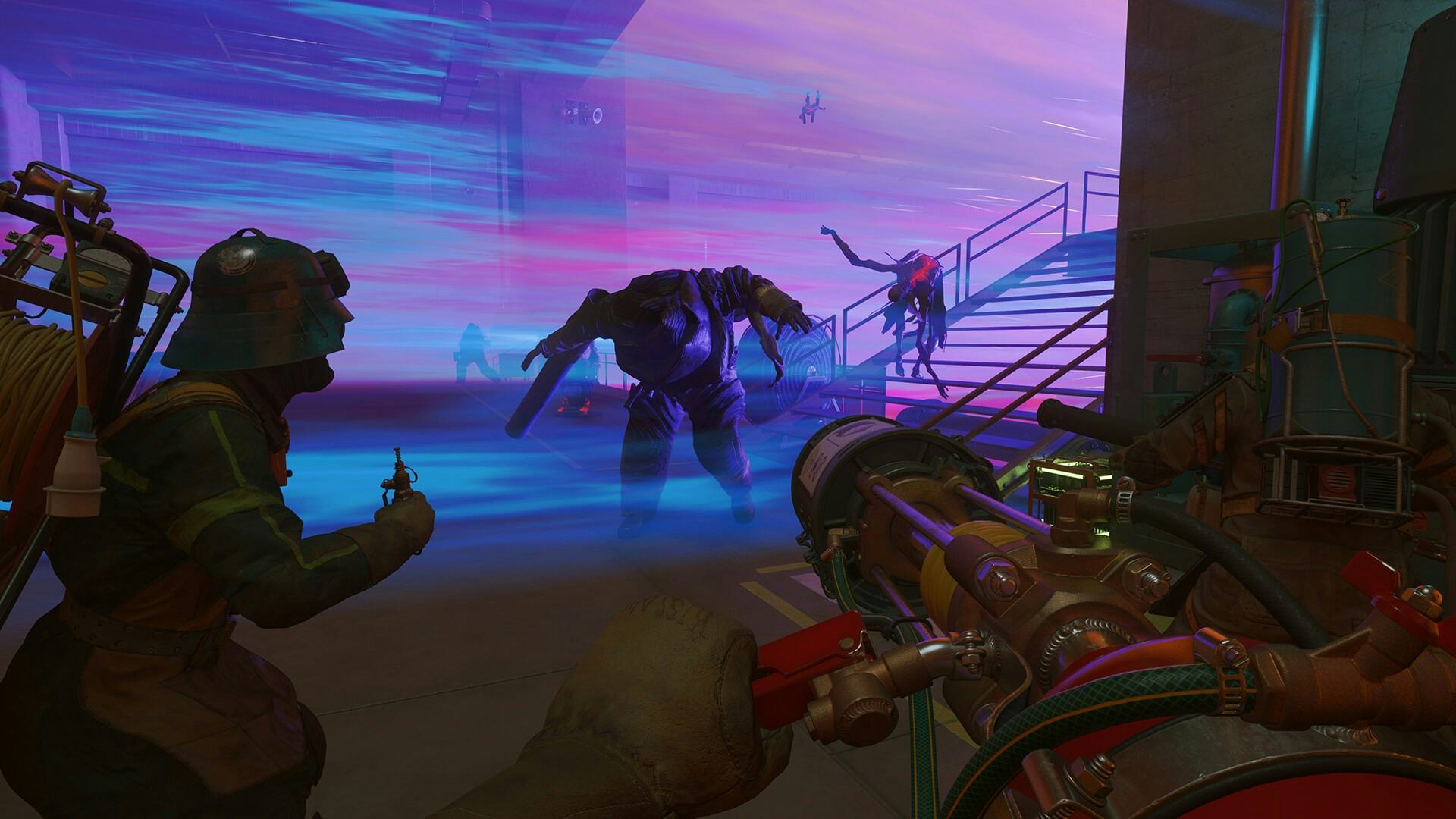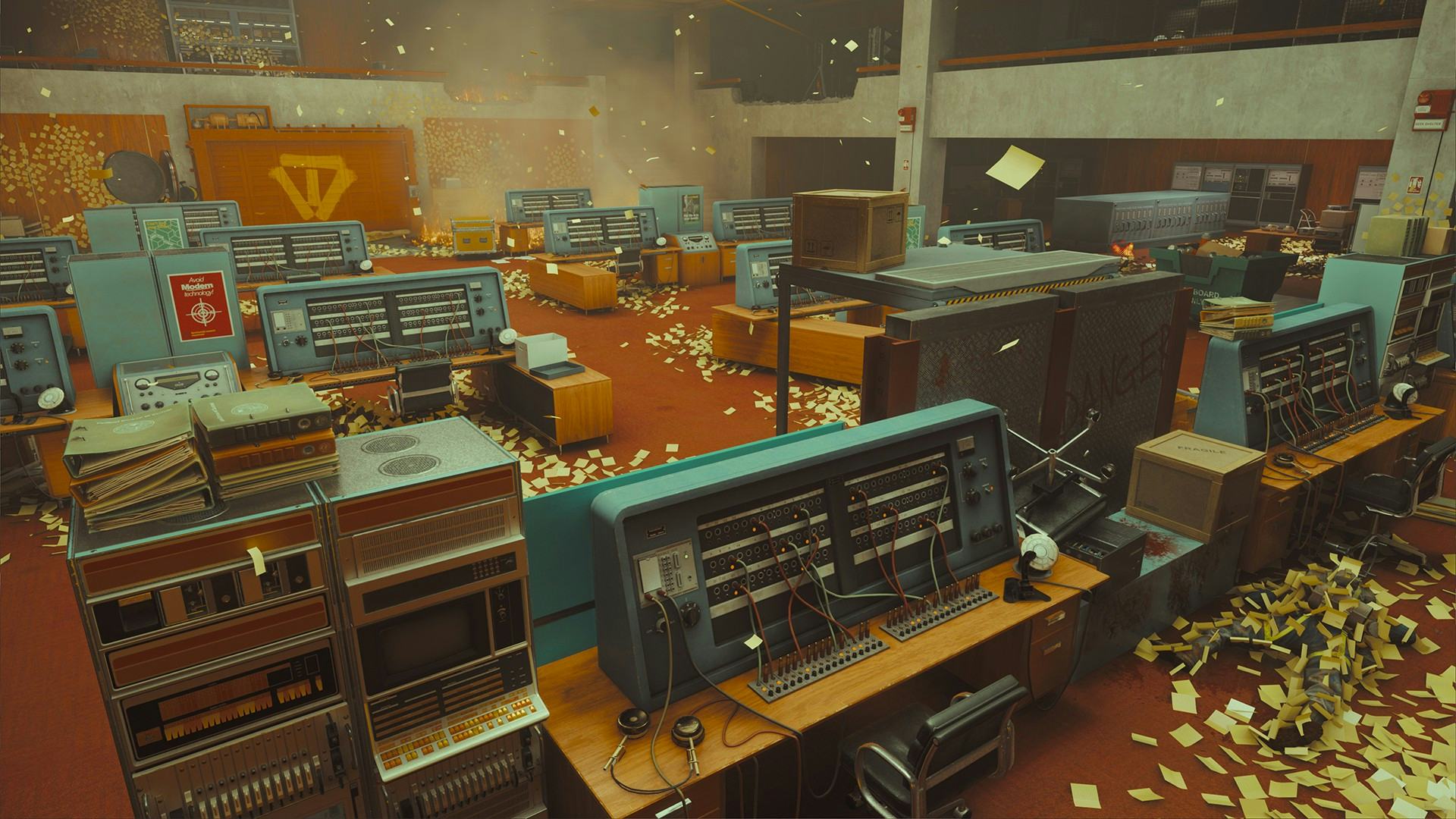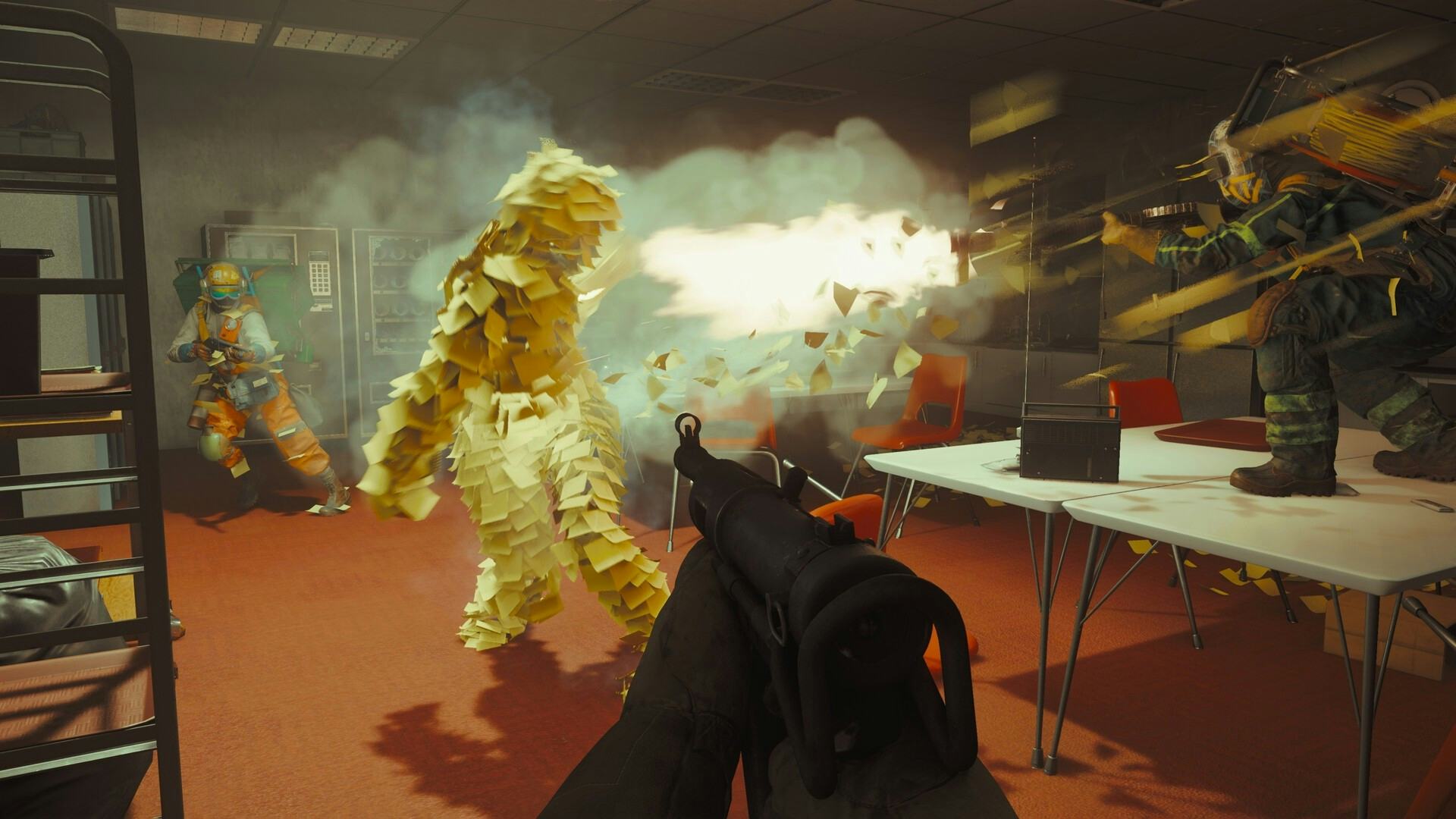
FBC: Firebreak is a major investment for Remedy Entertainment, the studio behind beloved games like Alan Wake and Control. This is Remedy’s very first multiplayer game, a three-player co-op experience set in the paranormal world of Control.
For a studio known for its complex narrative experiences, Firebreak presented both an immense challenge and a golden opportunity — to enter a competitive multiplayer market with something that really stands out. Being set in the same world as Control means that Firebreak already has established elements, like the violent supernatural enemies called The Hiss and the ever-shifting, alive, headquarters of the Federal Bureau of Control, known as The Oldest House. But that is just a starting point for this ambitious project.
Just ahead of the launch of FBC: Firebreak, Inverse sat down with Kayatta to talk about how the game has changed, the studio’s creative process, and how the team took cues from films, among other things.
This interview has been edited for clarity and brevity.
As Remedy’s first multiplayer game, what has this experience looked like in terms of what it’s taught you about development, and what Remedy might be able to apply in the future?
Kayatta: Of course, Remedy is a multi-project studio, and there are lots of directors and creatives, and they take their own sort of lessons and stuff. But for me, I think one of the things that we've been able to tap into really effectively here is systems-led design. Just that joy of having the world do things that the player can discover and figure out for themselves, as opposed to what we often do. It works really well when everything is handcrafted.
This is less about building the fun directly for people; it’s been building a machine that builds the fun for people. It’s not like every game should be totally systemic, but it's definitely taught us quite a bit about how you can allow players to find that joy.
The other thing we’ve taken from this is to try to be very gameplay-led. We’re [Remedy] is very narratively led, typically speaking, and I think there's a lot of interest, even in games that aren't like Firebreak, to say, hey, maybe we just need to try to bring the gameplay in a little bit earlier and understand what it is.
For Firebreak, we were kind of freed from the tethers of very direct storytelling. So we didn't start with the screenplay, we started by saying here's a big gray box. What if we had a gun that makes balloons, cool? Build it. That's impossible to make later, so scrap that one – do something else. It's a different style of thinking and being creative.

With Firebreak’s Jobs, it’s comparable to a Left 4 Dead-style experience, with this kind of emergent chaos. How do you manage to balance those chaotic layers with wanting players to complete objectives?
Kayatta: That's been really difficult to be honest with you, because you have to find a smart way to, essentially, watch what the players are doing and sort of be reactive. But, of course, when you have three players and they're all doing different things, that equation gets really complicated really quickly.
There's a lot of behind-the-hood stuff trying to take care of that. But what we knew we needed was to try to think about the game almost like a film, as weird as that sounds, because it's a non-narrative game – but it's also the type of game that should be fun to watch. Even if you're not Twitch streaming, even for you yourself, you're participating in that experience with your friends.
So getting that pacing going where, even if you can make things exciting, you don't want it just sitting there the whole time at that level, where there's no time to breathe. It doesn't feel interesting. You need to come in and bring these peaks where they grow, and then come down. We got there first, I think, and could produce this experience that felt quite paced and quite cinematic and exciting.
But then you're like, I played that five times, now I know exactly what to do. So then you have to say, Okay, how do we intelligently reform this in different ways, so it's not predictable. That has been a multi-year experience, honestly, and I'm sure we still have tweaks to do after launch.
With this being a part of Remedy’s whole Connected Universe, and Sam Lake’s plans for that, how much did you collaborate with Sam? Did you have to do a back-and-forth?
There's a little bit of complexity to understand the thing. So there are two positions at the studio. We have a creative director who has a studio-level mandate of looking at the creative portfolio and the direction that we go generally. Then you have a game director who does that on a specific project. Sam is both of those, and they're two jobs. He's the creative director at the studio, but then also he's handling his own stuff, right?
So for me, with a game like this that doesn't have to have, and by design, doesn't have a lot of the what I would call intricate interweaving with the RCU: We are canon, we are connected, all that stuff is there, but because we created a little bit of a bubble space here, we didn’t want the route where you have to sign up for a third person cosmic horror adventure. It's not really fair to say, if you want the whole story, come play Control, that doesn't feel right. I love games like Control, and I love games like Firebreak, though, that audience is not the same.
So all that to say, by design, the way we started was to say, this is canon – we're going to stick it in the world of Control, but we're also going to create what I would call a soft kind of wall around the experience. What that did was let me have incredible creative freedom inside of it.

There wasn't a lot back and forth, batting stuff around. Now, I obviously did chat with him to collaborate, the same with the director of Control and others. We all work together, respect each other.
Sam actually, he's crazy, man. I didn't talk to him for months and months. I sat down with him, and I was like, let me just tell you about something. Then he goes, “Oh, hey, maybe you should do this.” It's just brilliant, immediately making it into a game idea. He's got that magic touch where you don't need to talk to him every day.
I worked with Mikael [Kasurinen] more just because he tends to shepherd the Control larger franchise. From the outside, it’s probably this strange, creative matrix.
How have you looked at creating Jobs that all feel markedly different, especially with post-launch support plans?
It’s super important that they do. When we decided not to go with something more traditional campaign narrative approach, we wanted to make something replayable. We knew that the Jobs were going to feel a little bit more like game modes, but we also weren't going to change the fundamental mechanics of the game, which is what you typically associate with changing the mode.
The way we think about it is some kind of centralized harsh thing – like a harmful condition, a status effect, a thing that is affecting you inside the game. You have this big system of interconnected things, and then you just kind of jam this thing in the middle of that system. The systems do a lot of the work to help.
It's too early for us to go into detail, but our first Job that we're going to come back to actually involves the Mold. We even say in the description we're going to bring up this idea of hunger, because in Control, you always talk about don't eat the mold. Well, why shouldn't you eat the mold? Why would you even want to eat the mold? Oh, right, because it just makes people hungry.
Then we think, well, Firebreak is all about regular people, and hunger is a wonderfully regular person thing. That’s how we start and say, what is it like to be paranaturally hungry? If you do eat them all, or you're forced to, how does that generate itself? That's how we start with those ideas, and once we understand that central component, everything else ends up flowing.

How much has this project changed since you started, now that you’re so close to launch?
It’s like night and day. We released this very early piece of concept art; we didn’t have a name at the time, and it was these four very Ranger-looking dudes. Some people have asked, “What happened?” and it’s actually a big natural iteration. We also had concept art that looked like three people from The Matrix. We explored a lot of stuff, and it took us a long time to understand what the game was.
If you remember, we had another project, Codename Vanguard, which had this other very different multiplayer thing. So we had to find our space against them, and our space against Remedy, and it took a very long time. By the time we came around to finding what the game was, it snapped together super fast.
When we started, we actually had this idea that The Oldest House was sick. We had all these explorations of what it would be like if The Oldest House had a tumor? How would that be expressed? And actually, we played with this idea that the House was allergic to The Hiss.
There was a weapon early on that was like a Nail Gun, and they had dipped the nails in this resonance, and you could shoot this resonance into The Oldest House to infect it – a swelling would appear, which meant a block. And you could platform by literally shooting walls and infecting it, and eventually the House would get mad and pop out the nail.
In that sense, it's always the same, because we still do these weird tools, and we want to play with what we can do. But also completely different, because we don't have infected nail guns. The same game, but also totally different.







